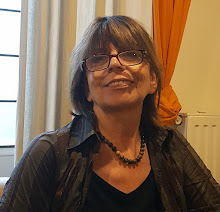Primesc, deci, acest slide-show de la un amic.
Raspund:
povesteşte-l pe scurt :)
io am decis să râman cu toate pps/t urile necititeeeeeee
:)
şi cu propria viaţă trăită.. pe lung!
în timpul ei --- hehe
Through 'Nestworking' you build an energetic gradient for the change you want to achieve - "Growing is an act of freedom"
Primesc, deci, acest slide-show de la un amic.
Raspund:
povesteşte-l pe scurt :)
io am decis să râman cu toate pps/t urile necititeeeeeee
:)
şi cu propria viaţă trăită.. pe lung!
în timpul ei --- hehe
Experience self (ES) versus Remembrance self (RS)
Possible positions in a evaluation conversation:
ES (manager-coach) & ES (employee-client)
ES (manager-coach) & RS (employee-client)
RS (manager-coach) & ES (employee-client)
RS (manager-coach) & RS (employee-client)
A good secquence
ES-RS*ES-ES*ES-RS*ES-ES
quite similar to GROW model.
The manager-coach must stick with his ES!
In search of curiosity
Curiosity (from Latin curiosus "careful, diligent, curious,"
akin to cura "care") is an emotion related to
natural inquisitive behavior such as
exploration, investigation, and learning,
evident by observation in human and many animal species. (wikipedia)
The need of evaluating emerges from the need of
change something you and the employee are stuck in –
something he is unable to explore by himself.
You do listening and questioning, but is a false approach if
you know the answers when you put the question!
You can not investigate, and to learn from, to move forward:
something you are unable to be curious about!
A manager-coach’s very feature
in evaluating an employee
has to be curiosity i.e.
being in a state of
Awareness, Consciousness, and Trust -
toward the other, and toward him self -
for Performance, Learning, and Enjoyment,
both the manager, and the employee.
Evaluating is about language – verbal and nonverbal
Problem - ?
Empowerment - ?
Emotional loaded - ?
Coaching is about language too.
ROI is about…
RETURN ON INVOLVEMENT
(Kevin Roberts, CEO Saatchi&Saatchi)
Coaching
in assessment conversations increases
responsibility and mobility
for both manager and employee.
O perspectivă conexă, aici:
http://coaching2success.blogspot.ro/2011/02/managerul-e-coach-sau-nu-e.html

''Cel mai tare m-a impresionat felul cum dispari ca viata personala in fata celui caruia ii oferi coaching.'' Magda Bunea,...
